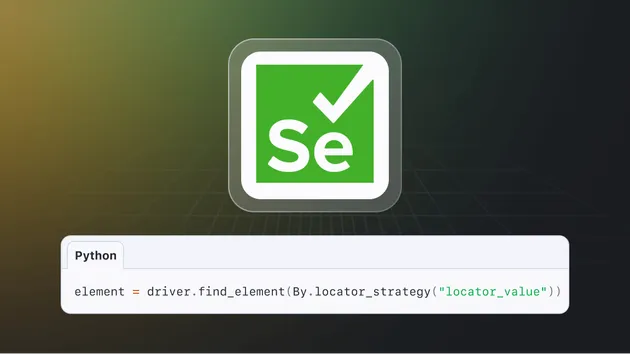Example Selenium
Pricing
Pay per usage
Go to Apify Store

Example Selenium
Example of loading a web page in headless Chrome using Selenium Webdriver.
Pricing
Pay per usage
Rating
5.0
(2)
Developer

Apify
Maintained by Apify
Actor stats
3
Bookmarked
289
Total users
3
Monthly active users
3 months ago
Last modified
Categories
Share




